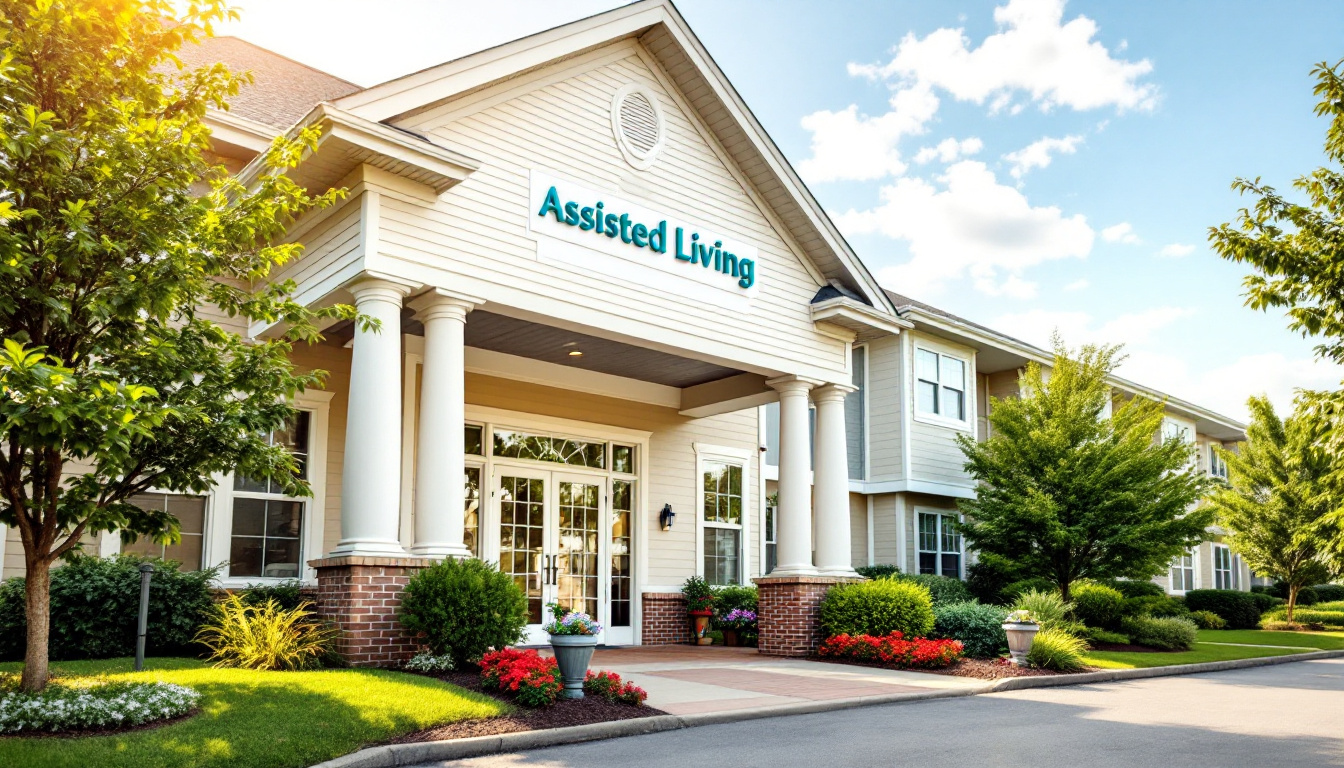The Benefits of Having a Senior Care Advocate on Your Side
Enhancing Elder Care with Expert Advocacy Support

Understanding the Critical Role of Senior Care Advocates
As our aging population continues to grow, ensuring seniors receive proper care and support becomes increasingly vital. Senior care advocates serve as dedicated professionals who champion the needs of older adults, guiding families through complex medical, legal, and care decisions. Their expertise not only improves health outcomes but also offers peace of mind for families seeking the best for their loved ones.
The Multifaceted Role of Senior Care Advocates

Support in healthcare planning and decision-making
Senior care advocates play a crucial part in assisting older adults and their families with healthcare planning and making informed decisions. They help navigate complex medical diagnoses, coordinate appointments with various healthcare providers, and ensure that the senior’s preferences are prioritized. Advocates can support understanding treatment options, managing medication regimens, and addressing concerns about side effects or procedures. They may also help with paperwork related to insurance, Medicaid, Social Security, and veterans benefits, simplifying the often complicated bureaucratic processes.
Coordination of medical and long-term care services
One of the primary functions of senior care advocates is coordinating medical and long-term care services. They schedule and oversee appointments, liaise between multiple doctors and specialists, and ensure the care plan aligns with the senior’s needs. Advocates also facilitate transitions to long-term care facilities or in-home care services, close monitoring of care quality, and prompt address arising issues. Additionally, they assist families in choosing appropriate housing options, whether aging in place, assisted living, or nursing homes.
Assistance with legal and financial matters
Legal and financial concerns are integral parts of aging, and senior care advocates help families manage these areas effectively. They provide guidance on legal documents such as powers of attorney, advance directives, and living wills. Advocates also support financial planning, including managing bills, understanding benefits like Medicaid or veteran’s aid, and ensuring coverage and billing are accurate. Their involvement can prevent costly mistakes, reduce financial stress, and protect the individual’s assets.
Promotion of person-centered care and dignity
Promoting dignity and respectful, person-centered care is a fundamental aspect of their role. Advocates work to ensure that seniors’ preferences, cultural values, and individual needs are respected within their care plans. They promote access to services that enhance independence and quality of life, such as home safety evaluations, social activities, and emotional support. By fostering dignity, advocates help improve overall well-being and satisfaction for seniors living with chronic conditions or cognitive decline.
What are the functions of senior care advocates?
Senior care advocates support older adults and their families in making informed aging-related decisions, including healthcare planning, long-term care arrangements, and benefit applications such as Medicaid, Social Security, and veterans benefits. They coordinate medical appointments, interpret diagnoses, and help families navigate complex healthcare systems to ensure appropriate and personalized care. Additionally, advocates assist with in-home care coordination, home safety evaluations, crisis management, and emotional support, while also maintaining ongoing communication with care providers and facility staff. They play a vital role in advocating for the senior’s needs, ensuring they receive proper care and resources across various settings, including senior living communities. Furthermore, senior care advocates stay actively involved in the senior’s life, advocating for their preferences, monitoring health changes, and providing a voice for those who may no longer be able to communicate their wishes, especially in cases of dementia or advanced health conditions.
What benefits do seniors and their families gain from engaging a senior care advocate?
Involving a senior care advocate offers numerous advantages. They help ensure that seniors receive tailored, high-quality care aligned with their personal preferences. Advocates serve as knowledgeable guides for navigating healthcare systems and long-term care options, reducing confusion and potential crises. They advocate for the senior’s wishes, especially in cases of cognitive decline, and promote person-centered programming which enhances overall quality of life.
With an advocate’s support, families can experience less caregiver burnout and reduced stress. Advocates also help streamline communication between care teams and family members, ensuring everyone stays well-informed and involved. This support contributes to better health outcomes, improved safety, and greater peace of mind for families and seniors alike.
| Role | Description | Key Benefits |
|---|---|---|
| Healthcare planning | Supports in understanding diagnoses and treatment options | Better decision-making, medication management, and understanding of health conditions |
| Care coordination | Manages appointments, transitions, and care plans | Reduced stress, fewer delays in care, and improved quality of healthcare |
| Legal and financial guidance | Assists with legal documents and benefits applications | Financial security, legal protection, and resource access |
| Emotional support | Provides reassurance and respects personal preferences | Enhanced dignity, well-being, and emotional resilience |
| Advocacy in facilities | Ensures proper care and respect in care settings | Maintains quality of life and safeguards rights |
Understanding and utilizing the services of senior care advocates can significantly elevate the standard of care for seniors while easing the burdens faced by families. As the future of elder care continues to evolve with technological advances and policy improvements, advocates remain vital in ensuring seniors live with dignity, independence, and optimal health.
Supporting Families and Enhancing Care through Expert Guidance

How do senior care advocates support families and loved ones?
Senior care advocates serve as vital partners for families caring for older adults by offering expert insights and tailored care strategies. They work closely with families to develop personalized plans that reflect the senior’s health conditions, preferences, and values. This includes coordinating medical appointments, managing medications, and arranging appropriate in-home support or placement in care facilities.
Beyond healthcare management, advocates assist with navigating intricate legal and financial systems. They help families access government benefits such as Medicaid, Social Security, and veteran’s benefits, while also guiding them through legal matters related to power of attorney or estate planning.
A significant part of their role involves emotional support—listening to families’ concerns, clarifying options, and empowering them to advocate effectively for their loved ones. They also provide crisis intervention services, conduct comprehensive assessments of the senior’s needs, and educate families about available resources to optimize quality of life.
By acting as a liaison between the family and service providers, advocates ensure that seniors receive the appropriate care and respect while reducing the stress and uncertainty families often face. Their presence helps families feel more confident and informed, making difficult decisions more manageable.
Why is advocacy important in improving senior healthcare outcomes?
Advocacy plays a crucial role in enhancing health outcomes for seniors by championing their rights and ensuring they receive respectful, high-quality care. Advocates help combat age-related discrimination, elder abuse, and neglect, advocating for systemic changes that benefit vulnerable populations.
When seniors understand their medical options and feel supported during healthcare encounters, they are more likely to adhere to treatment plans, ask pertinent questions, and experience greater satisfaction with their care. Advocates facilitate this process by helping patients understand complex diagnoses, treatments, and medications.
Advocates also help streamline communication between seniors and healthcare providers, ensuring that concerns are voiced and understood. This helps prevent medical errors, manage side effects, and optimize pain control, which collectively improve health outcomes.
On a broader scale, advocacy influences policy reforms aimed at increasing funding, improving legislations, and expanding access to essential services. These systemic improvements support better quality of life and healthcare experiences for seniors.
How do senior care advocates assist with resource coordination?
Managing the many aspects of senior care can be overwhelming for families. Advocates simplify this process by coordinating essential resources, including housing options and benefits programs. They assist with the transition to long-term care facilities, help locate suitable housing, and facilitate access to in-home care services.
In terms of benefits, advocates guide families through complex application processes for assistance programs such as Medicaid, Social Security, and veteran’s benefits, ensuring timely and correct submissions.
They also perform home safety evaluations to recommend modifications that prevent falls and injuries, and they monitor the quality of care provided to ensure it meets standards. Advocates often work with other professionals, including elder law attorneys, social workers, and healthcare providers, creating an integrated support network capable of meeting the senior’s evolving needs.
How do advocates foster emotional support and empowerment?
Emotional well-being is a fundamental part of senior care. Advocates work to create a supportive environment where families and seniors feel heard and validated. They provide reassurance, reduce feelings of helplessness, and offer guidance during difficult transitions.
Through education and communication, advocates empower families to actively participate in decision-making. They encourage open dialogue about care preferences and help articulate questions to healthcare teams.
Moreover, advocates assist in crisis situations, offering immediate support and facilitating access to urgent services. They help families understand their legal rights and options, instilling confidence in navigating the complexities of aging care.
Overall impact of support from senior care advocates
Having a dedicated advocate provides peace of mind to both seniors and their families. It ensures that the senior’s health needs are addressed comprehensively, that their rights are protected, and that care plans are consistently aligned with their best interests.
Furthermore, advocates help prevent caregiver burnout by distributing responsibilities, offering expert advice, and providing emotional reassurance. Their role ultimately helps enhance the quality of life for seniors, ensuring they receive respectful, effective, and personalized care.
| Aspect of Support | Description | Impact |
|---|---|---|
| Personal Care Planning | Customizing care plans based on needs and values | Better tailored care and satisfaction |
| Healthcare Navigation | Coordinating doctors, treatments, and legal matters | Reduced confusion and errors |
| Resource Coordination | Housing, benefits, legal help | Streamlined access to services |
| Emotional and Family Support | Reassurance, education, crisis intervention | Reduced stress and empowered families |
Important considerations when working with advocates
Families should research the credentials and experience of prospective advocates, conduct interviews, and seek referrals. Trusted organizations, like the H.E.A.R.T. 4 Seniors Foundation, can connect families to reputable professionals.
Advocates should understand how to communicate effectively with healthcare teams, ask relevant questions, and help interpret medical information. They often accompany seniors to appointments, take notes, and assist in managing medications.
Having an advocate who is organized, discreet, and familiar with the senior’s health history ensures the best support. Incorporating technology, such as telemedicine and health apps, can further enhance their ability to serve effectively.
Through ongoing policy advocacy and the use of innovative technologies, the future of senior care advocacy promises improved access, quality, and respect for the dignity of seniors—making a meaningful difference in their lives and those of their families.
Navigating Medical Systems with Confidence

How do senior care advocates assist with health and medical navigation?
Senior care advocates play a critical role in helping seniors and their families understand and navigate the complex world of healthcare. They assist by clarifying medical information, explaining diagnoses, procedures, and treatment options in understandable terms. These advocates coordinate medical appointments, ensuring all healthcare providers are aligned and that treatments are consistent with the senior’s needs.
They also manage medical records and facilitate communication among doctors, specialists, and caregivers. This ensures that everyone involved is informed and that care is continuous and coordinated. Advocates help families interpret insurance claims and explanations of benefits, making complex bills more manageable.
Beyond practical management, advocates promote autonomy by educating caregivers and family members about elder health challenges, treatment choices, and rights. They support emergency planning and help families prepare for crises, offering peace of mind and systemic stability for seniors battling chronic conditions or in need of specialized care.
Their involvement ensures that the senior’s voice remains central in healthcare decisions, fostering better health outcomes and respect for personal preferences.
What benefits do seniors and their families gain from engaging a senior care advocate?
Engaging a senior care advocate offers numerous advantages. They serve as dedicated guides through the often overwhelming healthcare landscape, ensuring that seniors receive personalized and appropriate care. Advocates coordinate with multiple healthcare providers, schedule appointments, and manage treatment plans, reducing family stress and avoiding overlooked health needs.
By ensuring clear communication and advocating for the senior’s wishes, they help prevent medical errors and unnecessary treatments. This is especially important in managing complex conditions that involve multiple specialists.
Advocates also assist in selecting suitable living arrangements and long-term care options, matching the senior’s preferences with appropriate services. They work to uphold the senior’s rights and advocate for dignity and respect in care settings.
Families benefit from reduced caregiver burnout, as advocates shoulder some of the logistics and decision-making burdens. Furthermore, advocates empower families with knowledge and resources, ensuring that care decisions are well-informed.
Their support fosters a more person-centered approach, increasing the overall dignity, comfort, and health of seniors while providing families peace of mind.
| Area of Assistance | Explanation | Related Benefits |
|---|---|---|
| Medical Appointments | Coordinating visits, ensuring questions are asked | Better understanding of health status, reduced miscommunication |
| Treatment & Medications | Managing medication schedules, understanding side effects | Improved adherence, minimized adverse reactions |
| Insurance & Billing | Interpreting bills, ensuring coverage | Fewer surprises, financial peace of mind |
| Facility Transitions | Facilitating moves to long-term care | Smoother transitions, safeguarding preferences |
| Education & Support | Providing caregiver training and elder care info | Empowered families, informed decision-making |
By offering comprehensive support tailored to each senior’s unique needs, advocates create a healthcare journey marked by clarity, dignity, and quality care.
Helping Find the Right Home for Seniors

How do senior care advocates help find suitable senior living arrangements?
Senior care advocates play a vital role in guiding families and seniors through the complex process of choosing the appropriate living environment. They begin by assessing the older adult’s unique needs, including medical requirements, daily living activities, and personal preferences. Based on this evaluation, advocates help families understand the range of available options such as assisted living facilities, nursing homes, or maintaining in-home care.
They manage logistics by coordinating tours, gathering information about facilities, and handling application paperwork. Advocates also navigate the financial landscape, helping families explore benefits like Medicaid, veteran benefits, and other funding sources. Legal considerations, such as powers of attorney or estate planning, are also addressed to ensure the arrangement aligns with the senior’s long-term needs.
With their extensive experience, senior care advocates offer personalized recommendations and support families through each step, making the transition smoother. Their involvement ensures that seniors receive care in environments promoting safety, independence, and happiness.
Why is advocacy important in improving senior healthcare outcomes?
Advocacy is crucial for enhancing healthcare experiences and outcomes for older adults. It guarantees that seniors receive respectful, appropriate care tailored to their individual health conditions. Advocates act as protectors and facilitators, ensuring that seniors’ rights are upheld and reducing risks of ageism and neglect.
Effective healthcare advocacy helps seniors interpret complex medical information, ask pertinent questions, and make informed decisions about their treatments. This empowerment often results in better health management and higher satisfaction. On a broader scale, advocates influence policy changes that improve healthcare funding, access, and quality for seniors, driving systemic improvements.
Furthermore, advocacy reduces healthcare disparities by supporting vulnerable populations, such as those with limited income or cognitive impairments. It also helps prevent elder abuse, exploitation, and neglect by maintaining vigilant oversight of care standards.
Overall, advocacy fosters a healthcare environment rooted in dignity, respect, and personalized care, enhancing overall well-being and quality of life for seniors.
Assessing needs and preferences
| Step | Description | Additional Details |
|---|---|---|
| Needs assessment | Evaluate medical, physical, and emotional needs | Involves medical records review and personal interviews |
| Preferences | Consider lifestyle, location, and facility type | Focuses on safety, independence, and community environment |
| Compatibility | Match services with individual care requirements | Ensures personalized and effective care plans |
Understanding senior living options
| Option | Description | Suitable For |
|---|---|---|
| Independent Living | Housing for active seniors | Those valuing independence with minimal assistance |
| Assisted Living | Support with daily activities | Seniors needing help with routines but not intensive medical care |
| Nursing Homes | Skilled medical care | Seniors with complex health needs requiring 24/7 supervision |
| In-home Care | Care services provided at home | Adults wishing to stay in familiar surroundings |
Facilitating the placement process
| Step | Action | Role of Advocate |
|---|---|---|
| Evaluation | Assess needs and preferences | Conduct thorough assessments and suggest options |
| Facility Tours | Visit potential residences | Arrange visits and gather detailed information |
| Application | Complete paperwork | Assist with forms, appeals, and document gathering |
| Transition | Move-in coordination | Support move logistics and acclimation |
Legal and financial planning for housing
| Aspect | Details | Tips |
|---|---|---|
| Powers of Attorney | Legal authority for decision-making | Establish early to ensure control over estate and care decisions |
| Medicaid & Veterans Benefits | Financial support options | Gather information and apply early to increase approval chances |
| Estate Planning | Wills and trusts | Protect assets and specify care preferences |
| Cost Management | Budgeting for care | Seek financial counseling and explore funding sources |
This comprehensive approach by senior care advocates not only ensures smooth placement into suitable residences but also safeguards seniors’ rights and financial interests. Their expertise helps families navigate complex health and legal systems, reducing stress and promoting peace of mind.
Driving Systemic Change and Raising Awareness

Why is advocacy important in improving senior healthcare outcomes?
Advocacy plays a crucial role in enhancing healthcare for older adults by ensuring they receive respectful, appropriate, and effective care. It helps protect their rights and promotes dignity, fighting ageism and discrimination that can hinder quality treatment.
By addressing issues like elder abuse and exploitation, advocates work to create safer environments for seniors. They also strive to make healthcare resources more accessible, especially for vulnerable populations such as low-income or frail seniors.
A key benefit of advocacy is aiding seniors in understanding medical information. As health conditions become more complex with age, having someone to interpret diagnoses, medications, and treatment options leads to more informed decisions.
On a broader scale, advocacy influences policy reforms and legislative measures. These systemic changes serve to improve healthcare quality, reduce disparities, and ensure equitable access for all seniors.
Ultimately, advocates empower older adults and their families to prioritize safety, well-being, and respect. This combined effort results in better health outcomes and an improved quality of life for the aging population.
What systemic benefits do senior advocacy services provide?
Senior advocacy services generate wide-reaching benefits beyond individual care. They work to create more equitable systems by promoting access to essential services such as healthcare, housing, and social support.
A fundamental contribution of advocacy is fostering age-friendly communities. This involves environmental modifications, policy improvements, and legislative actions that protect seniors’ rights and facilitate their active participation in society.
Advocates also play a vital role in empowering seniors to maintain independence and make choices about their care. This enhances their dignity and autonomy, which are crucial for emotional and mental well-being.
Collaboration is another systemic advantage. Advocates often work with community organizations, legal agencies, and policymakers to develop sustainable solutions that support the aging population. This teamwork leads to infrastructure upgrades, better resource allocation, and stronger protections against elder abuse.
Overall, senior advocacy acts as a catalyst for positive societal transformation. It fosters inclusive, accessible environments that uphold the rights and needs of older adults, ensuring their contributions are valued and their vulnerabilities addressed.
| Aspect | Impact | Additional Details |
|---|---|---|
| Access to Resources | Equitable | Ensures all seniors can access healthcare, housing, and social services regardless of income or location |
| Policy Development | Systemic | Influences laws and regulations to protect elder rights and improve care standards |
| Community Engagement | Inclusive | Promotes age-friendly initiatives and community involvement |
| Protection from Abuse | Safeguarding | Prevents elder abuse, exploitation, and neglect through awareness and legal measures |
| Dignity and Autonomy | Empowerment | Supports seniors in making their own choices and maintaining independence |
| Collaboration | Systems Improvement | Encourages partnerships across sectors to enhance services and infrastructure |
Advocacy thus acts as a driving force for systemic improvements, ensuring that the needs of seniors are prioritized and met through policy, community, and environmental changes.
Empowering Seniors and Their Families
Engaging a senior care advocate provides invaluable benefits that extend beyond individual care. These professionals act as vital connectors, educators, and defenders, ensuring seniors’ needs and wishes are prioritized within the healthcare system and community. Through advocacy, systemic barriers are challenged, and the quality of elderly care is enhanced, leading to better health outcomes and greater dignity for seniors. Supporting this movement is essential to creating inclusive, responsive, and effective care environments where seniors thrive.
References
- The Benefits of Having a Senior Care Expert by Your Side - Advocare
- Why Every Family Needs a Senior Care Advocate: Your Guide to ...
- The Power of a Health Care Advocate | Johns Hopkins Medicine
- Why Senior Care Advocates Are the Key to Revolutionizing Elderly ...
- Four Advantages of Working With a Senior Living Advisor |
- What You Need to Know as Your Loved One's Senior Care Advocate
- Advocating for Senior Health Care
- Why Every Family Needs a Senior Care Advocate: Your Guide to ...
- Caregiver to Care Advocate: Navigating Senior Care for a Loved One





































































































